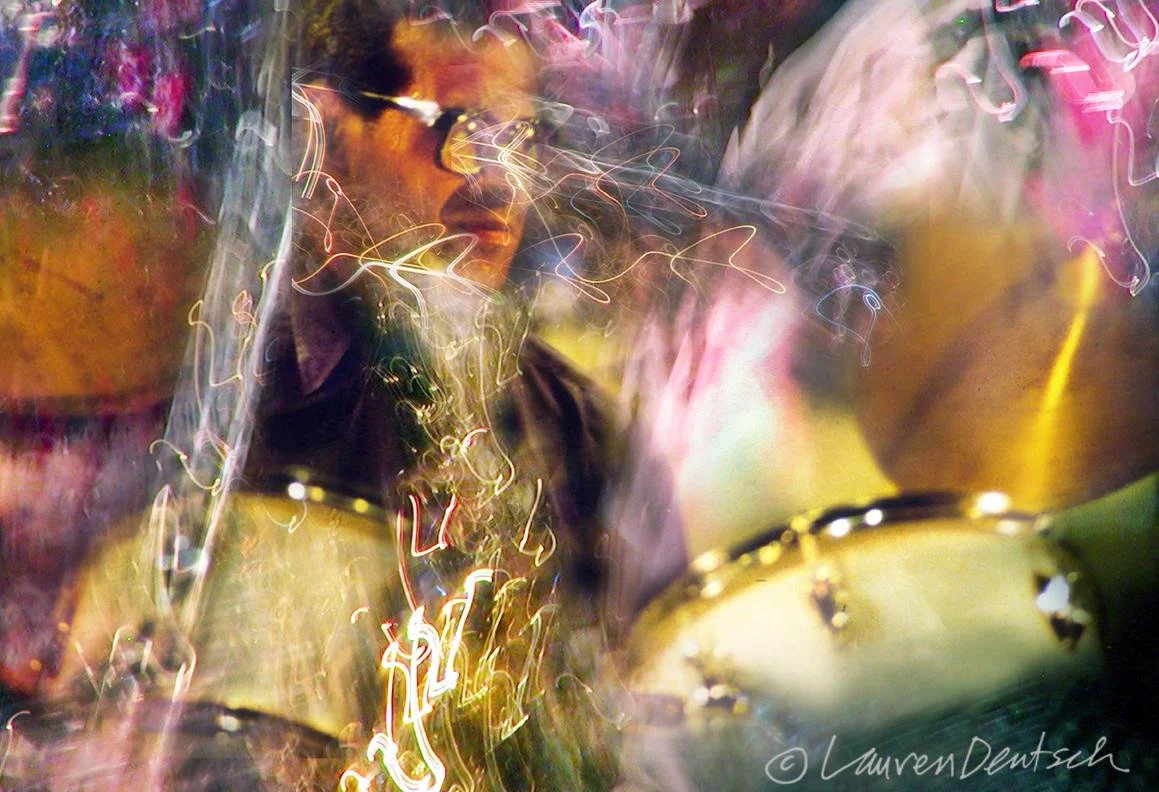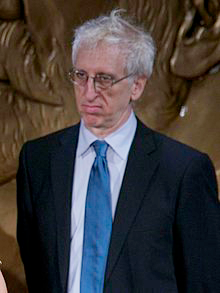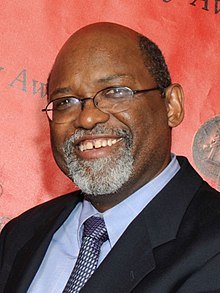“The Drum Also Waltzes” Explores Max Roach, the Man, the Musician, and His Messages
Directors Pollard and Shapiro discuss award-winning documentary
Photographer and former Jazz Institute of Chicago Executive Director Lauren Deutsch captured Max Roach in the moment during his performance at the 1980 Chicago Jazz Festival and completed the image in 2018.
In eighty-two minutes, two documentary filmmakers allowed the music, messages, and moods from Max Roach (1924-2007) to be seen, heard, and absorbed in all their beauty and ugliness. Titled Max Roach: The Drum Also Waltzes – the subtitle comes from a solo performance on Roach’s 1966 album Drums Unlimited – this documentary played twice at the Gene Siskel Film Center during its annual Black Harvest Film Festival. This film, by the way, recently won an award from the International Documentary Association.
After the premiere screening on November 12, directors Sam Pollard and Ben Shapiro discussed their purpose and goals via video with Nick Leffel, Black Harvest Fest Film Coordinator. Shapiro, who included his archived interviews with Roach in the film, noted how the drummer’s iconic, individual style still educates him today.
“Whenever his solos come up, I’m amazed. I still see different things about them,” said Shapiro, who also plays drums. “They’re always fresh, exciting, and moving. They’re reflective of him as a personality and very expressive of the human being doing this work.”
From his participation in The Quintet’s historic performance at Massey Hall in 1953 – anchoring an ensemble that included Bird, Diz, Bud Powell and Charles Mingus – to M’Boom, his percussion ensemble, and collaboration with Fab 5 Freddy, Roach’s all-encompassing, never compromising mission to these and numerous endeavors could have consumed the entire film.
While this multi-generational, multi-genre artistry demonstrated Roach’s truth and amazing adaptability, Pollard said, there remained much more to explore.
“The other part of his life important in terms of documenting was his activism, his attitude that he was not just a so-called jazz musician,” said Pollard, who began working on the documentary in 1987. (Pollard, a flautist, has also worked on several Spike Lee movies, and directed documentaries about poet Langston Hughes and entertainer Sammy Davis Jr.) “Max was a musician who was about promoting racial equality and racial justice. All those elements made him a tremendous person, and I thought he was someone who should be shared with the world.”
The Drum Also Waltzes explored, among many other creations, We Insist! Max Roach’s Freedom Now Suite. Released in 1960, this album amplified his demands for Black people’s humanity to be recognized. Accompanied by vocalist (and, later, wife) Abbey Lincoln, a four-member horn section, bass, and three percussionists, the album included “Freedom Day” and “Tears for Johannesburg.” When asked in an interview if he viewed his music as a weapon, Roach said, “Sometimes we do use the music as a weapon against man’s inhumanity toward man. Everything I wrote and recorded has to do with the (civil rights) movement.”
Such commitment, Shapiro added, is why this documentary remains important.
“This idea of being a creative person, and also wanting to see changes happen in the world, and how you go about that and the challenges of those kinds of lives, were all factors in the story we wanted to tell,” he said.
When contemplating the best ways to present Roach’s life in full, Pollard and Shapiro interviewed an extensive list of collaborators that included Sonny Rollins, Dee Dee Bridgewater, Jimmy Heath, and Harry Belafonte.
“It was a new political feeling among the guys,” Rollins said about the impact Roach had on him and his bandmates, “and Max exemplified that.”
“He wasn’t trying to be anything,” Belafonte said. “He was already it!”
Roach’s refusal to reside in past triumphs, Pollard added, never ended. His political, social, and artistic perspectives were always evolving and current. In 1983, Roach collaborated with hip hop rapper Fab 5 Freddy, his godson, on beat boxes and drum set.
“Max expanded his ears,” Pollard said. “Someone said, ‘How can you play with these hip hop musicians? It’s not music.’ And Max would say, ‘It’s not music in the traditional sense that you think music is, but it is music.’ He was part of cutting-edge change. That is what made Max so special.”
When Leffel asked how they combined archival performance footage with interviews, Pollard cited one moment where Bud Powell’s “Parisian Thoroughfare” was played by the Clifford Brown/Max Roach Quintet. “We let the music play,” he said. “You see the charts, which was Ben’s idea, and you hear the music before we really start to talk about it.”
Featured listening space was also given to M’Boom, We Insist!, and trumpeter Clifford Brown, who co-led a quintet with Roach until his sudden death in 1956. Such balance between music and voices, Pollard noted, gave this film its own vibe.
“Even with eighty-two minutes, you could feel the music,” he said. “You could let it breathe so that the audience could not only get the information about Mr. Roach and the others, but also hear it in the music.”
While Roach’s lifetime accomplishments are the film’s focus, his hair-trigger temper and pugnacious nature were also addressed. Trombonist Julian Priester discussed an intense moment when he and Roach had an on-stage fistfight. “How,” Leffel asked, “do you approach that as filmmakers with sensibility?”
Honoring someone through a documentary, Shapiro answered, is best done by being honest. To ignore a person’s faults, he explained, is to deny one’s humanity.
“You can fit all accomplishments of a human being into a movie, but…you should try as much as you can to reflect their complexities,” he said. “You just seek out a balance so that it does not take over things or (become) bigger than it was, but you respect that part of him, so you address that.”
Pollard recalled the reaction The Drum Also Waltzes received from Roach’s children after a screening held last summer in Brooklyn.
“All of Max’s (five) children except for Maxine and Darryl were there,” he said. “They appreciated what we did. ‘You guys did your job,’ (they told us.) They understood who Max Roach is, what he was all about, and (his) complexities. That, to me, was real.”
Celebratory Cymbal Crashes for the Centenarian!
On January 10, 2024, the Facebook page devoted to Max Roach featured this statement from Raoul Roach, his son: “Who did Max Roach inspire with his astoundingly innovative drumming and exceptional musical eloquence? It might be easier to ask who he didn’t inspire, given the enormous, genre-leaping impact of Roach, who died in 2007 at the age of 83 and would have celebrated his 100th birthday today.”
Three days before this milestone, Raoul shared this philosophy from his father:
“ ‘I am an American and the drum set is one of the few instruments native to this country,” ’ said Max, in my favorite quote. “ ‘This is a democratic nation and jazz is a democratic music in which we all express ourselves as individuals and cooperate for the overall good. That's good enough for the bandstand and it is good enough for the world. In music, you can make a dream come to life as a reality of design and feeling. Democracy is a dream of being able to do it better someday. I have never stopped dreaming.’ "



